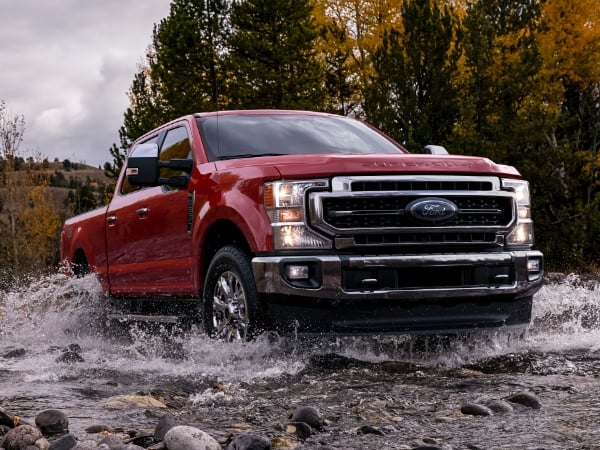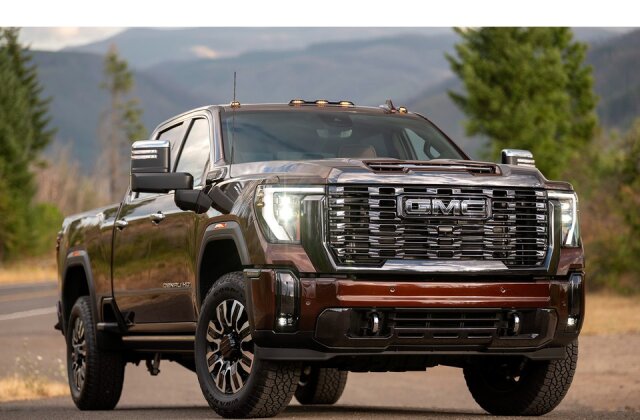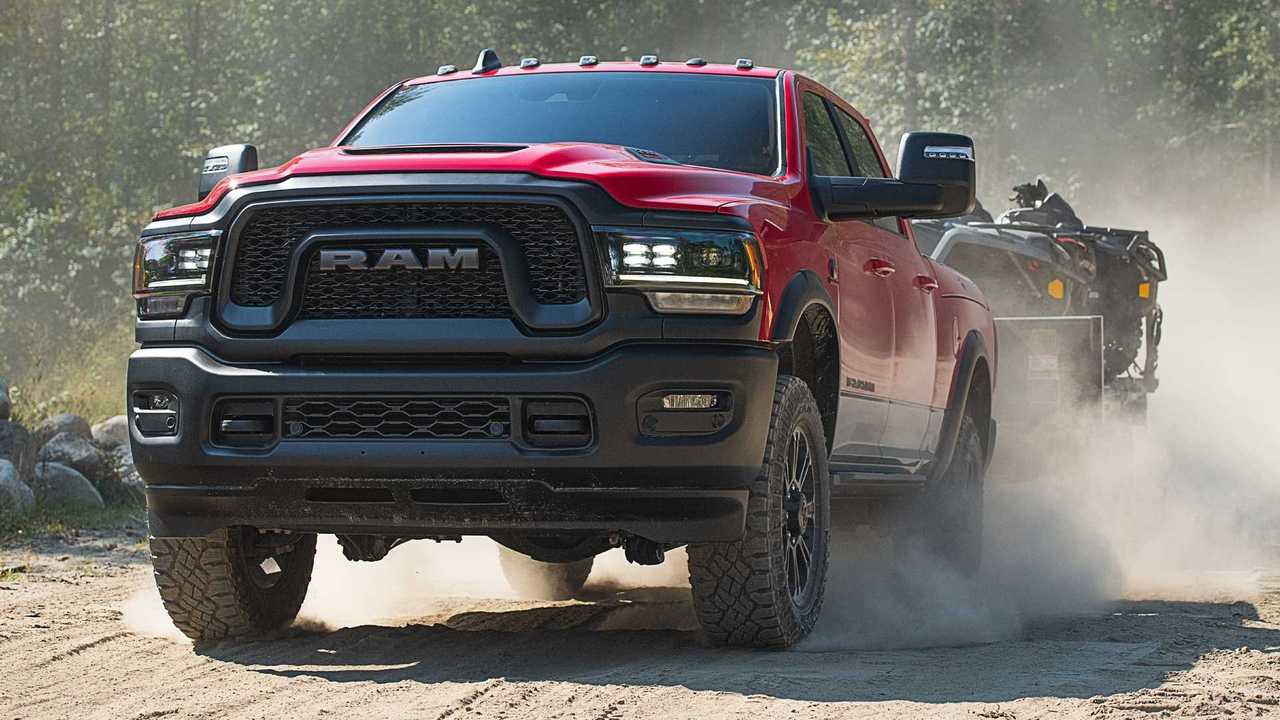What is the Difference Between Modern Diesel Pickup Truck Engines and the Old Ones?
Diesel pickup trucks have come a long way since their inception. What once started as a powerful workhorse for farmers, contractors, and anyone needing raw torque has now evolved into a highly refined piece of machinery capable of balancing power, efficiency, and sophistication. But what exactly has changed? How are modern diesel pickup truck engines different from the old ones?
If you’re someone who grew up around diesel trucks or even worked with one in the past, you’ll know that the diesel engines of the 1970s, 80s, and 90s had a reputation for being strong but rugged. In many ways, they were workhorses, but they lacked the finesse and reliability of today’s trucks. Today, diesel engines are smarter, more efficient, and cleaner, but let’s break down exactly what sets the modern engines apart from their old counterparts.
1. Performance and Power
Back in the day, diesel engines were known for their raw power and torque, but they often lacked speed and performance. The old diesel engines, especially those from the 1970s and 1980s, weren’t exactly built for speed or smooth rides. Instead, they were designed to tow, haul, and work under extreme conditions.
For instance, the engines in older trucks, like the ones introduced by General Motors in 1978, were more focused on providing steady torque for heavy-duty jobs. They were reliable but sluggish. The engines produced power at low RPMs, but they often had slower acceleration compared to modern trucks.
Fast forward to today, and diesel pickup truck engines have managed to retain that high torque while improving in overall power. Modern diesel engines are turbocharged, meaning they have significantly more horsepower and faster acceleration without sacrificing the low-end torque needed for heavy hauling. You’ll find modern trucks like the Ford Super Duty or the Ram 2500 are both strong and quick, making them not only work trucks but also smooth on-road performers.
2. Fuel Efficiency
Fuel efficiency was one of the main reasons diesel engines were introduced into pickup trucks, especially during times of high fuel prices. However, older diesel engines, while more fuel-efficient than their gasoline counterparts, still had room for improvement.
In older models, fuel was sprayed into the combustion chamber using mechanical injectors, which weren’t always the most precise. The result was decent fuel economy but with a lot of unburned fuel, leading to wasted energy and more emissions.
Modern diesel engines, on the other hand, have adopted common rail direct fuel injection systems, which use computer-controlled injectors to deliver just the right amount of fuel at the perfect moment. This precision not only improves fuel efficiency but also enhances overall engine performance. Additionally, the turbocharging in modern engines helps reduce fuel consumption, giving you more miles per gallon (MPG), even when towing or hauling.
The result? Modern diesel trucks can travel farther on less fuel, especially compared to older diesel engines, making them more economical over long hauls or regular heavy-duty work.
3. Reliability and Durability
Older diesel engines were built like tanks, designed to last for hundreds of thousands of miles. But this came at a cost—both in terms of comfort and in terms of maintenance. While the engines were tough, the technology wasn’t as advanced as it is today, and parts wore out faster. The lack of precision in fuel injection and engine components led to more frequent breakdowns or the need for extensive maintenance.
Modern diesel engines have improved upon this durability with the help of advanced materials and technologies. The use of stronger metals, more accurate engineering, and advanced oiling systems have allowed modern diesel engines to last just as long—if not longer—while requiring less maintenance. Newer engines also have better cooling systems, which prevent overheating and reduce wear and tear over time.
Additionally, today’s trucks come equipped with diagnostic systems that alert owners to potential issues before they become major problems, making modern diesel engines more reliable and easier to maintain than ever before.
4. Technology and Electronics
One of the most significant differences between modern diesel pickup truck engines and the older ones is the sheer amount of technology packed into today’s engines. In the past, diesel engines were purely mechanical beasts. Everything, from fuel injection to throttle control, was managed by mechanical systems, which often led to inefficiencies and breakdowns.
Modern diesel engines are controlled by advanced electronic systems. These systems monitor everything from fuel pressure to air intake, making real-time adjustments to optimize performance. Electronic Control Units (ECUs) manage the entire engine’s operation, ensuring better fuel efficiency, power delivery, and lower emissions. Additionally, modern trucks come with onboard diagnostics, which allow mechanics (and even drivers) to pinpoint issues quickly and accurately.
This level of precision was unimaginable with older diesel engines, which often required manual adjustments or guesswork when something went wrong.
5. Noise and Vibration
If you’ve ever driven or been near an older diesel truck, you’ll know that noise was a major drawback. The loud, clattering sound of the engine was a trademark of older diesel trucks. This noise was primarily due to the high compression ratio of diesel engines and the lack of insulation around the engine compartments.
Modern diesel engines, however, are much quieter. Sound-dampening technologies, better engine design, and improved insulation have made today’s diesel trucks far less noisy. Diesel combustion is still louder than gasoline, but the difference between an old diesel engine and a new one is night and day. Today, you can drive a diesel truck on the highway and hold a conversation inside the cabin without shouting.
6. Cost and Value
Older diesel trucks were often seen as an expensive investment, especially when compared to their gasoline counterparts. The upfront cost of a diesel truck was higher, and maintaining the engine was also more costly, with parts being harder to find and repairs more frequent.
While modern diesel engines still come with a higher upfront cost, their value has increased significantly due to their fuel efficiency, reliability, and longer lifespan. Additionally, the introduction of diesel warranties and service plans has made owning a diesel truck more affordable in the long run. Though you may pay more upfront, modern diesel engines provide better value over time with fewer breakdowns and lower long-term maintenance costs.
7. Towing and Hauling Capacity
One thing that hasn’t changed much over the years is the diesel engine’s incredible ability to tow and haul heavy loads. In fact, this is where diesel engines still outshine their gasoline counterparts. Older diesel trucks were always the go-to for towing, thanks to their low-end torque, and that hasn’t changed with modern trucks.
However, modern diesel engines have taken towing capacity to the next level. With turbocharging and advanced fuel injection systems, modern trucks can tow heavier loads while maintaining stability and control. Today’s trucks also come with tow-specific driving modes, advanced braking systems, and trailer-sway control to make towing safer and more efficient.
Conclusion
The difference between modern diesel pickup truck engines and the old ones is a story of technological advancement, improved efficiency, and better reliability. While older diesel engines were raw and powerful, they lacked the refinement and precision of today’s engines.
If you’re someone who needs a truck for heavy-duty work, long drives, or serious towing, the diesel engines of today are a far cry from their predecessors. Whether you grew up working with an older diesel truck or you’re just getting into the world of diesel pickups, one thing is clear: the modern diesel engine is a finely tuned machine that still delivers on the promises of power and durability, just with a lot more comfort and efficiency to go along with it.


